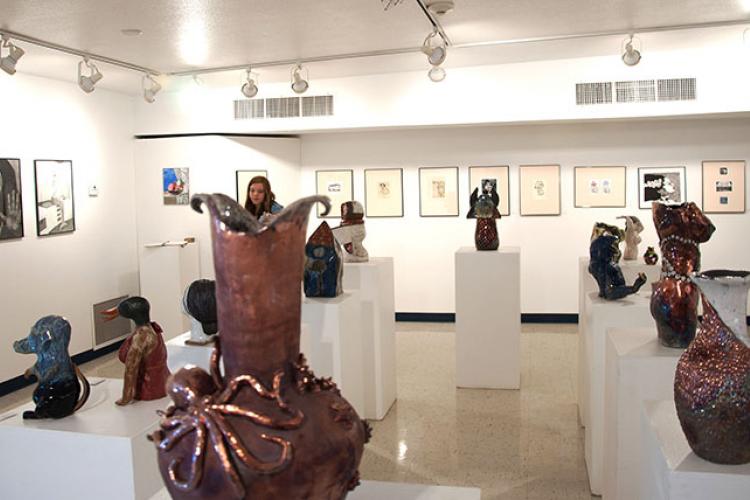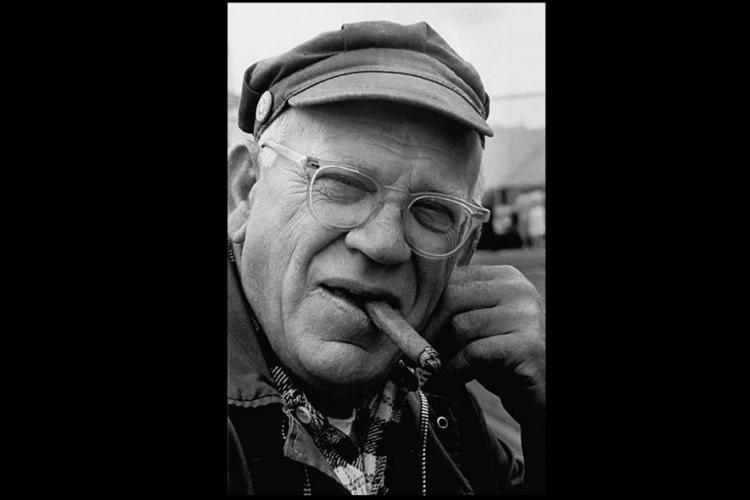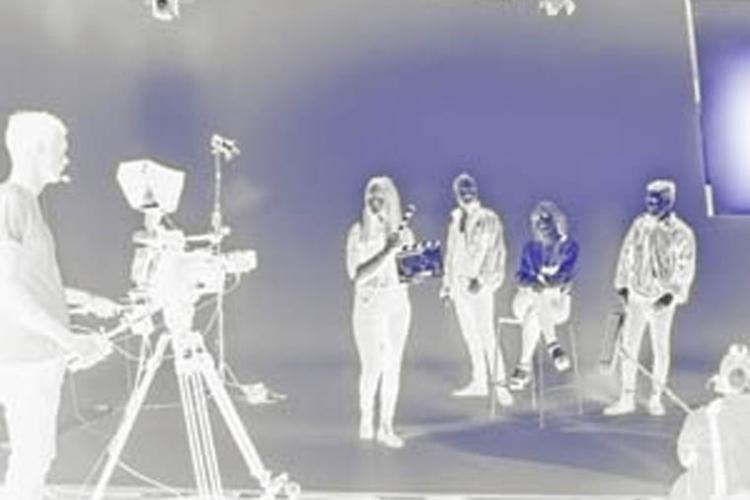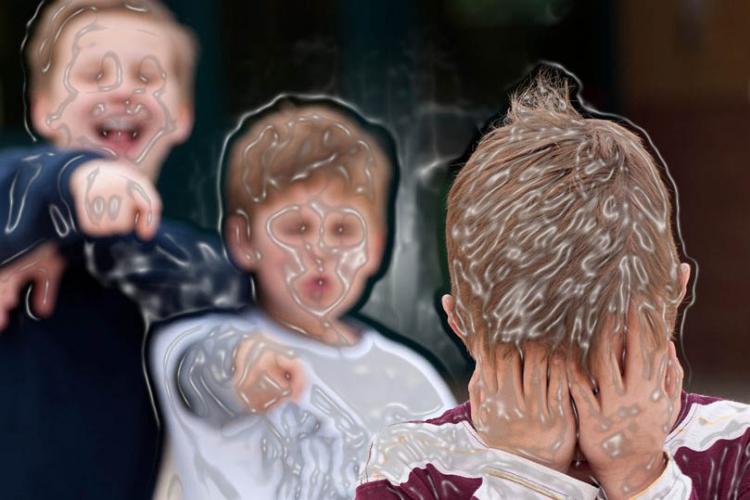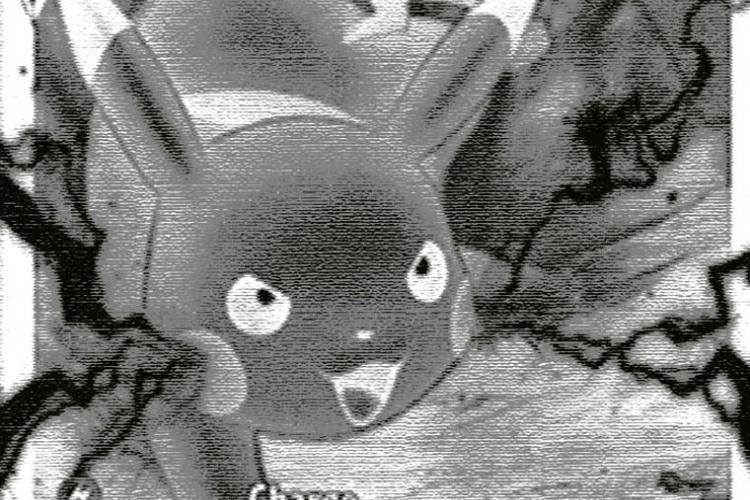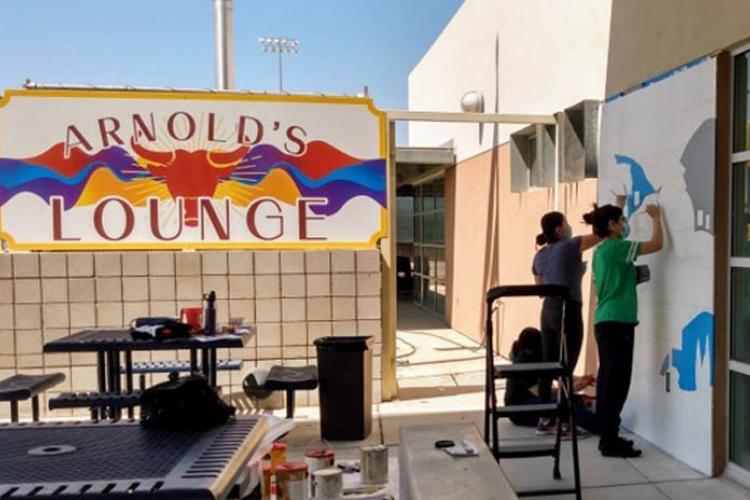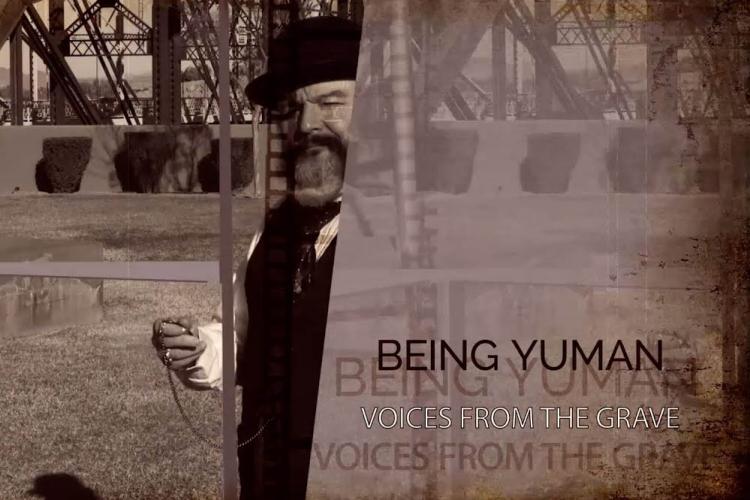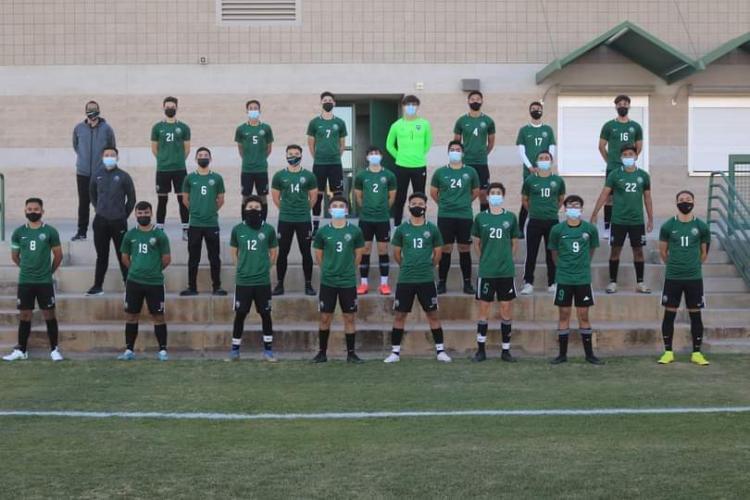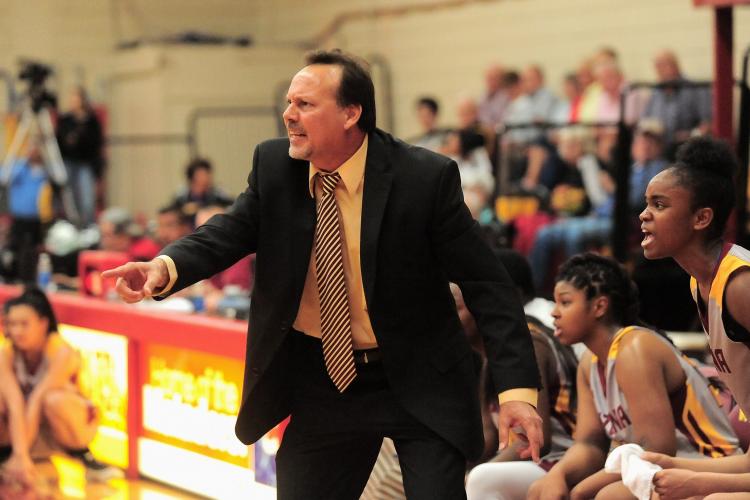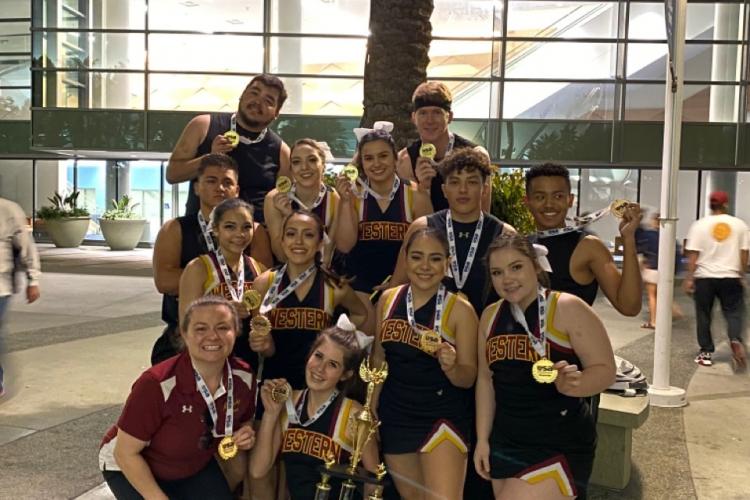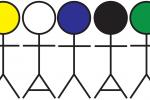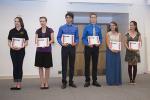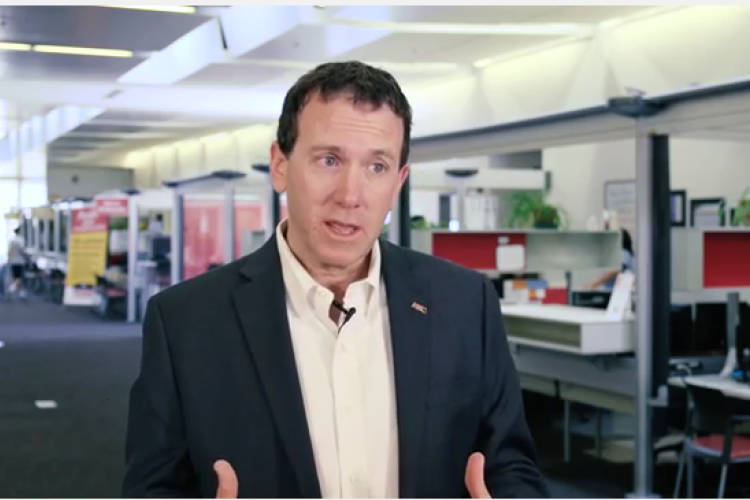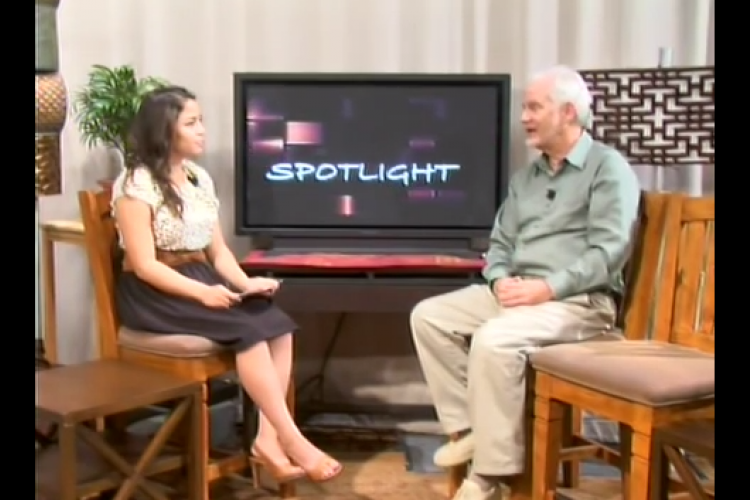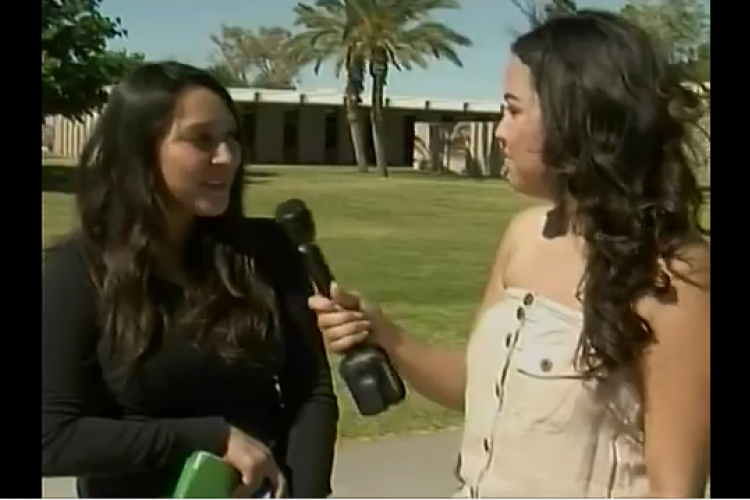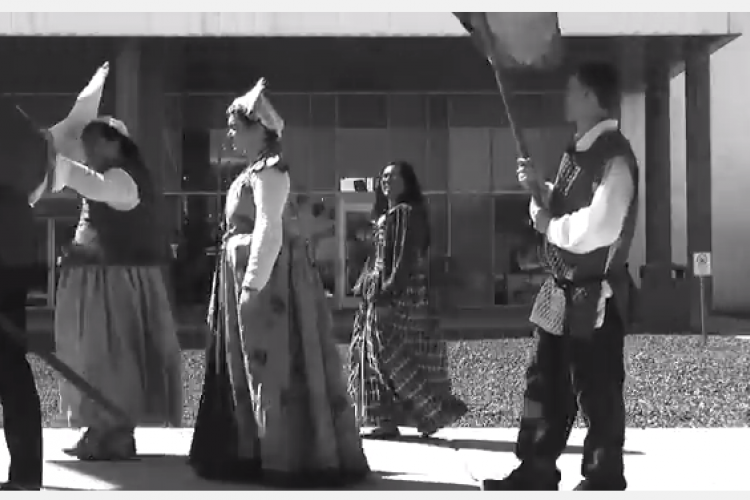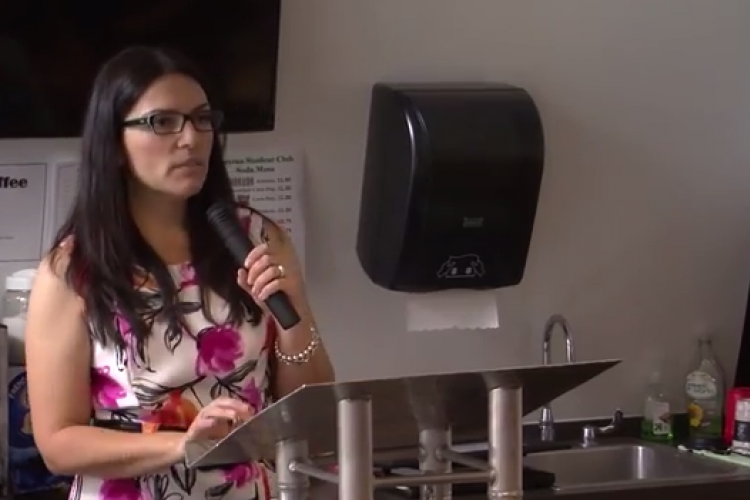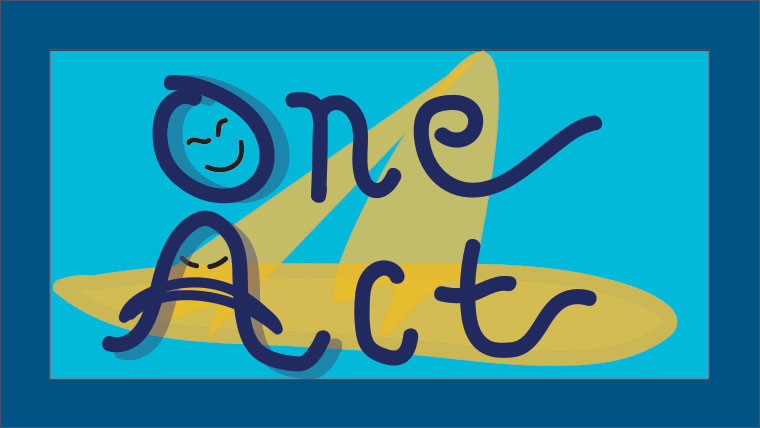
The college seemed like a ghost town, on a cold and windy Friday night. My friend and I showed up just in the nick of time, 7:20 P.M. I was afraid seats would be filled by the time the play started, I wasn't quite sure if we were at the right part of the school because I’ve never been to Arizona Western College’s theater auditorium. Luckily I noticed some young ladies entering a building which seemed like the location of the play.
We picked front row seats. Walking in, the first thing I noticed was the already built set and the small stature of the auditorium. I was expecting filled seats and accidently bumping people when you got up but there were only about 12 people in an auditorium that probably would hold 50 people.
The set for the first play was already in view. The set consisted of office decor equipped with a whiteboard that said “Office Rules”, folders, pencil holders, office telephone, classic 3D glasses and a pitcher with cartoon kid cups which I found a bit odd.
A quick welcome from Alfredo Figueroa preceded the start of the plays, “There will be no intermission and we thank you for joining us”.
“Controlling Interests” by Wayne S. Rawley; directed by Arantxa Acosta.
The lights were turned off but there was enough light to make out the outline of a man strolling towards the office telephone. The lights turned back on and the brightness caught me off guard, causing me to put my hand up to block the light while my eyes adjusted.
Four businessmen; Jack, Brad, Steven, and David played by (in order) Christopher Pereda, Alfredo Figueroa, Jonathan Aguirre, and Martin Lopez. They were having their weekly meeting; the topic, of liking girls, is suggested by Jack for the meeting. This lead to remarks of cooties and fears from the others guys. Ashley and Bethany played by Maygen Larson and Claire Bleich are invited to the meeting. Ashley plays the controlling bossy lady, and Bethany acts like her assistant making statements like, “I know long division”, that received laughs from the audience.
In a bossy manner, Ashley barges in and tells the boys what it takes to like a girl. Suggesting that girls should be on their mind 24/7. They should think only about girls, and not things like Star Wars. The boys immediately reject their proposals. One of the boys asks, “What do we get in return?”.
Ashley abruptly states that if the rules are followed “then maybe, just maybe you could see our boobs”.
This line caught me by surprise yet, had me chuckling. I learned that the first play was just a little taste of what the actors had in store for us.
The funniest part of the play was a conversation between Ashley and Brad where Ashley asks the question “Where do you get off on the school bus?”.
Ashley’s intent was to show that girls are smarter than boys. Brad responded with, “I get off in front of my house”. This answer was received with a smirk and a giggle from Ashley and Bethany
It created a comedic effect when she asked the question again and Brad responded with the same answer. The crowd reacted with laughter. In restating that he got off in front of his house he didn’t realize that he was symbolizing a deeper more embarrassing statement of masturbating in front of his house.
The jokes during the first play had the auditorium filled with laughter. Themes are hard to judge in plays and movies. Personally, I think the play was about kids having to grow up too fast, using comedy as the glue that held the play together.
When the curtains closed, the play was over and the lights went off. Ever so slightly the lights were turned back on, not to their full effect but just enough to create silhouettes. Actors and background people raced to swap out sets for the next live play live.
“Till Death Do Us” by Gene Fiskin; Directed by Erin E. Natseway.
Starring Bianca Rollings as Helen and Salome Siruno as Steve. The set was designed as a hotel room with a couch bed, luggage thrown by the window, and a printed Las Vegas scenery photo of hotels.
The play was about Helen antagonizing Steve during their honeymoon, pointing out such things as his not noticing her but paying attention to the bridesmaids and other little things of that nature. She even questioned Steve's love for her.
The conversation jumps from topic to topic as Helen drives Steve crazy to the point of him being disinterested about the thought of getting any action on his wedding night. The play ended with Steve in the shower and Helen on the bed contemplating the night’s events. When the set was changed, it was clear the second play was over.
“Telephone”; directed by Salome Siruno,
The third pay contained the simple plot of a break-up with deeper meaning. The stubbornness of both lead characters turns this play into a petty contest of who is going to pick up the phone to tell the other one how they feel.
On the left side of the stage was a couch, some unopened boxes, a small table in front of the couch, and a fridge in the middle, with a telephone on each side of the fridge.
The right side of the stage included the fridge with a dining table. The two minor characters, J.T. and Danny, played by Aguirre and Natseway, played cards at the table.
The minor characters and the two leads were all outstanding. Their natural dialogue created a sense of authenticity.
Chris and Kelly, played by Pereda and Hannah Lavin had recently broken up. Kelly is moving and will have a male roommate, Jake. The play was two scenarios, one for each lead. One is Kelly at her new apartment the other is Chris at his friend's JT and Danny’s house.
Kelly invites her friend Sam, played by Tanya Perez, over to help her move and to discuss her decision on leaving Chris. Chris, at his friend's house is noticeably irate. His friends keep bringing up the subject of his girlfriend, Kelly, while they are playing cards.
The play ends in a stalemate with both, Kelly and Chris making the decision to call one another. However, they never following up on their good intentions, hope the other will call them first.
The dialogue had excessive cursing which took away from the continuity of the play. Other than that small criticism this play was one of my favorites standing out with its acting and believable characters.
“Hope (And Charles)” by David Schulner; Directed by Alfredo Figueroa.
The last and final play of the night stared Charles as Martin Lopez, Hope as Maygen Larsen, Hasid as Jacob Natseway, and Chinese Bride as Bianca Rollings.
This play was serious with little to no comedy. There were two sets on the stage. The left side included a dinner table with plates and menu to signify a restaurant in which Charles and Hope are featured. The right side of the stage set far back and virtually out of view featured Hasid and the Chinese Bride. The set was similar to the left side but was dimly lit to reflect the past and lent a pensive nature to the play.
The play followed a theme of race and love and how times have changed. The characters are in sync but showed in different time periods, Charles, is the present, reflected by Hasid from the past. Hope, is the present, reflected by the Chinese Bride from the past.
During the first couple of minutes of the play I was confused trying to figure out who the actors on the different sets represented. It was distracting because I found myself focusing more on the couple in the back, than Charles and Hope who were right in front of me.
The play ends with Hope and Charles seeing that even though Charles is a Jewish man, a different religion from Hopes, it doesn't matter as long as they love each other, with no consequences except judging eyes. On the other side of the stage, representing times past, Hasid and the Chinese Bride also fall in love but their decision in doing so leads to having to hide from dangerous people who are hell bent on finding them.
A great experience
My first play ever. I’m glad I had such an enjoyable experience. It really sets the tone for the others to come. I was pleasantly impressed with the caliber of acting presented by AWC’s Theater program.
Watching plays live didn’t feel any different than being in a movie theater. I still had to use my imagination in order to understand the different situations in each play.
Jonathan Aguirre, an actor in three of the plays stated, "I felt amazing. All of the actors did an amazing job, we have all worked very hard to show great entertainment to the public and I will love to continue acting with awesome people.
All the plays had something different to offer, with a nice pace, going from absurd, entertaining, Genuine, and finally purposeful. My words do not do justice to the sheer talent and acting ability of everyone there. I recommend that you attend this and any other future projects of AWC’s theater program.
Graphic by Pam Black


